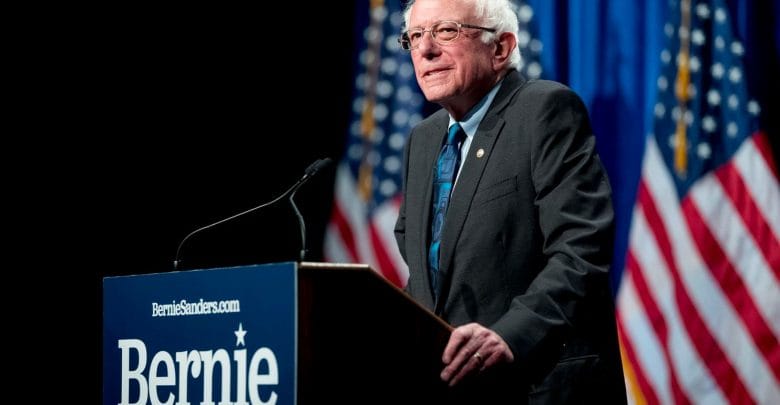
Bernie Sanders’s brand of socialism is hard to pin down
Three years ago, Bernie Sanders made socialism cool again. Suddenly you couldn’t swing a cat in Brooklyn without sending it through a chapter meeting of the Democratic Socialists of America or tweet a joke about Karl Marx without getting a very serious lecture about the labor theory of value.
I was surprised, but on some level shouldn’t have been. Why should the younger generation fear socialism? They never had nightmares about getting nuked by the commies, and neither had they taken the package tours to the Soviet Union that advised you to bring your own toilet paper.
But without the ideological anchor of the Soviet Union to define it, Sanders-era American socialism has seemed, frankly, a little fuzzy. There are as many definitions of socialism as there are young socialists, and few of them resemble the sweeping programs of nationalization and wage and price controls socialists once championed.
Among the fuzziest socialists has been Sanders himself, who keeps saying that, by socialism, he means Scandinavia. But this has nonplussed the Scandinavians, who don’t consider themselves socialist. They are social democrats whose philosophy has roots in the socialist movement, but they ultimately decided to leave markets mostly alone and redistribute the proceeds.
If you’re a social democrat, with a political philosophy that governs many thriving nations — including, to a limited extent, the United States — why not just say that, rather than lashing yourself to a revolutionary fringe with a tendency toward totalitarian repression and economic immiseration? It seemed that Sanders must mean something more than just expanding the welfare state, but if so, what?
On Wednesday, Sanders gave a speech at George Washington University that seemed intent on clearing up some of that confusion. He spoke for about 40 minutes, repeatedly invoking the legacy of President Franklin D. Roosevelt and making fun of earlier generations of conservatives who had used socialism as a scare word to oppose Social Security, unemployment insurance and Medicare. What he wants, Sanders told his audience, is to “take up the unfinished business of the New Deal and carry it to completion.”
After Alexandria Ocasio-Cortez’s primary win, columnist Elizabeth Bruenig explains why democratic socialism is taking off.
In his prepared remarks, he promised an “Economic Bill of Rights” to complement the old-fashioned political one, guaranteeing “every man, woman and child in our country basic economic rights — the right to quality health care, the right to as much education as one needs to succeed in our society, the right to a good job that pays a living wage, the right to affordable housing, the right to a secure retirement and the right to live in a clean environment.”
Sanders is correct that conservatives have a lamentable tendency to label things as socialist that really aren’t. But then that same point could be made about Sanders himself, for what he’s offering still seems like garden-variety social democracy. So again, why is he calling himself a socialist?
It seems to me there are three possible answers to that question. One is that, with political power potentially within his grasp, Sanders has decided to disguise his true beliefs to some extent. There’s reason to suspect this is the case. Sanders did, after all, honeymoon in the Soviet Union, and more recently, as Yascha Mounk has pointed out, for all his railing against authoritarianism, Sanders finds it surprisingly hard to condemn left-wing dictators. It isn’t far-fetched to think he admires the more revolutionary brand of socialism but doubts he can get elected by frankly endorsing full-frontal state control of the means of production.
The second possibility is that the post-Cold War revelation of the horrors of Soviet communism has caused Sanders to rethink his earlier affection for the hardcore socialist model, but he clings to the label out of loyalty to the ideals that inspired it. That would be easily understandable, if politically risky.
But it’s also possible that since Sanders is now a sincere social democrat, he is trying to bring that vision to fruition by engaging in that great capitalist exercise, the market segmentation. It has already been often observed that the Sanders program isn’t all that far from, say, Elizabeth Warren’s. And Sanders can’t really compete with Warren on wonky detail. But the socialist label sets him apart from the other candidates, generates buzz and particularly appeals to the much-coveted 18-to-34 demographic. Which would, of course, be the mark of a true social democrat: co-opting capitalist methods, rather than trying to invent something wholly new to replace them.
